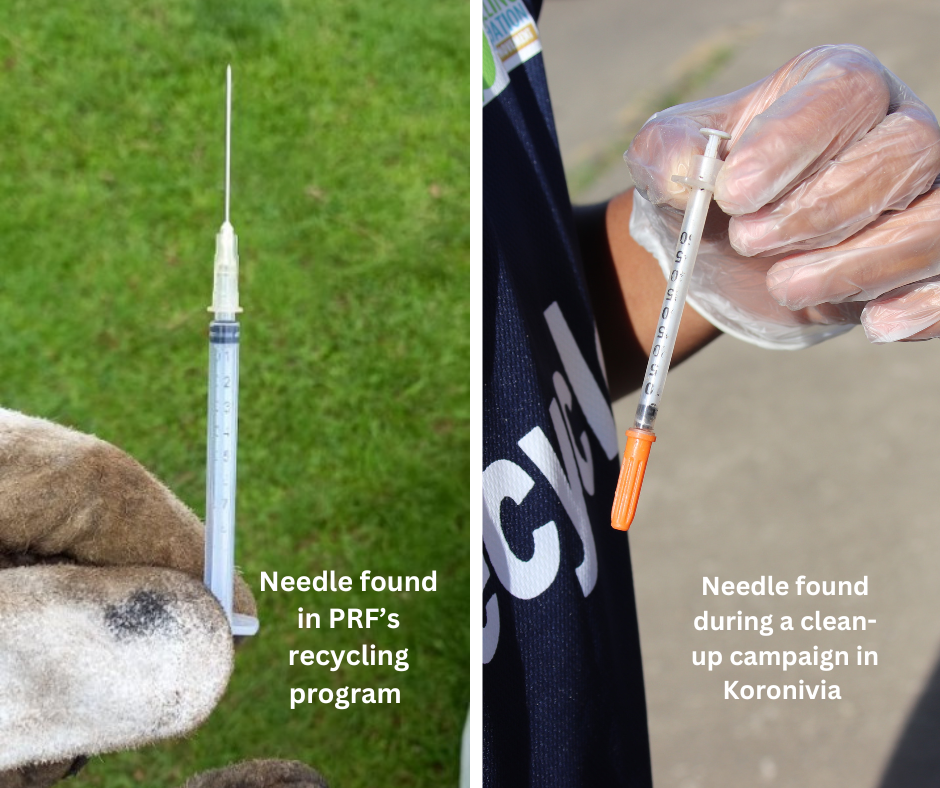PRF Expresses Grave Concerns Following Discovery of Needles and Syringes Amidst Rising Drug Cases


Amidst the rise in drug cases in Fiji, Pacific Recycling Foundation is issuing an urgent appeal, expressing deep concern over the recent discovery of used needles and syringes within its recycling programs in community and educational settings, as well as during clean-up campaigns.
PRF is alarmed by this troubling trend, as the presence of these materials in recycling programs is increasingly common and poses a significant threat to the health and safety of recycling workers and the public.
“It is extremely concerning that needles and syringes, which are classified as hazardous waste, are being improperly disposed of in recycling bins. Such careless actions put the lives of our recycling workers at significant risk, as they may come into contact with potentially contaminated needles,” said Amitesh Deo, Founder of PRF.
The discovery of needles and syringes in our recycling programs and similar findings during a recent PRF- organized cleanup campaign in Koronivia is particularly troubling.
“As a grassroots organization, we are witnessing the magnitude of Fiji’s drug crisis in the different communities we work with as well as through a disturbing increase in needles and syringes found in our recycling programs and during community clean-ups,” said Deo.
“There is an urgent need to create referral pathways and establish rehabilitation facilities with a specialized support structure to deal with the current drug crisis,” stressed Deo.
PRF emphasizes that all medical waste, including needles and syringes, must be disposed of through proper, secure channels. Recycling programs are not equipped to handle hazardous materials, and the presence of such items in the recycling stream poses serious risks, including potential injuries and the spread of diseases.
“We urge all sectors to act responsibly and ensure that hazardous waste is disposed of correctly,” added Deo.
The Foundation also calls for increased vigilance and cooperation from all sectors to prevent further risks associated with the improper disposal of hazardous waste.
“We cannot afford to overlook the potential dangers posed by these practices. The safety of our workers and the success of our recycling efforts depend on immediate action and accountability,” highlighted Deo.